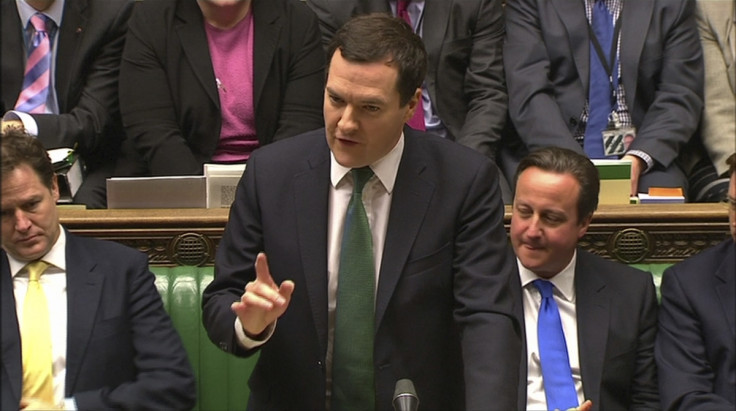How Real are George Osborne's Threats About Leaving EU?

George Osborne has made a desperate plea for reform of the EU but sadly his overtures can only introduce lines of division within his own party.
In answer to the chancellor's reform or decline speech, the shadow foreign secretary Douglas Alexander, pointed out that the Conservative leadership seems to be spending more time negotiating with their backbenchers than negotiating with Europe to deliver real reform.
"All of us know change in Europe is needed, but the tragedy is that David Cameron's internal party weakness is preventing him from approaching the need for reform in a sensible way," he said.
David Cameron's approach to the EU has been shown to be not just bad policy, but also a bad party management strategy, with nearly half of his own backbenchers just this week demanding more, he continued.
The concession from the opposition here is that Osborne is correct about Europe when he said: "We can't go on like this".
"As Angela Merkel has pointed out, Europe accounts for just over 7% of the world's population, 25% of its economy, and 50% of global social welfare spending," said Osborne.
Osborne, who has fought proposals to cap bankers' bonuses or a financial transaction tax, takes the view that the City of London is not in competition with Paris and Frankfurt, but rather with places like Hong Kong, Singapore, and New York.
"That's why it was important that we secured some important institutional changes to protect the UK and ensure we have safe, competitive financial services," he said in his speech.
What we must always remember is that Britain and the United States have a "special" relationship.
The US depends on its co-lingual former colonial master to communicate with continental Europe - which, after all, is full of incomprehensible people who know which glass is which and what those really small forks are for.
That is why Barack Obama recently told David Cameron that the UK must stay in the European Union.
The UK has always been quick to enter into trade or tax agreements with the US, and this was also a feature of Osborne's speech. He pointed out that the EU risks stalling a free trade agreement with the US which he said would be a "betrayal".
Osborne said that the world's biggest free-trade deal should be open to the idea of a smaller number of EU states liberalising trade in certain areas, even without an overall EU agreement.
In fact, the UK National Health Service has already been partly "harmonised" preceding the official US/EU Transatlantic Trade and Investment Partnership launch of negotiations in June 2013.
It is another fact that the EU has developed higher regulatory standards than the US, and this could get in the way of trade; other areas overburdened with regulations include GM and chemically treated food, fracking bans, and public services including public broadcasting.
This enormous regulatory dropping of hands between the two most powerful economic forces on the planet is normally carried on in secret; it's interesting to see it being mentioned so overtly and publicly.
"The hard truth is that if we want to maintain our way of life in Europe we've got to get more competitive. And that's going to require some tough steps: living within our means, making our labour markets competitive, expanding free trade," said Osborne.
In any case, Osborne stressed the government's determination to renegotiate the terms of British membership in order that the UK can remain in the EU following a referendum in 2017.
© Copyright IBTimes 2025. All rights reserved.






















